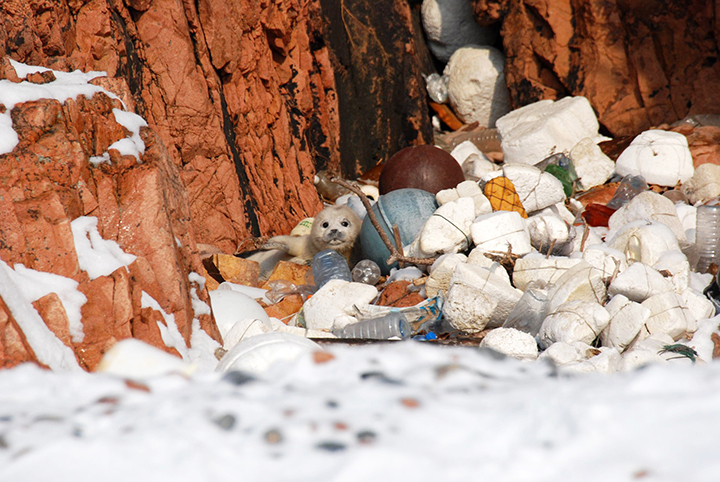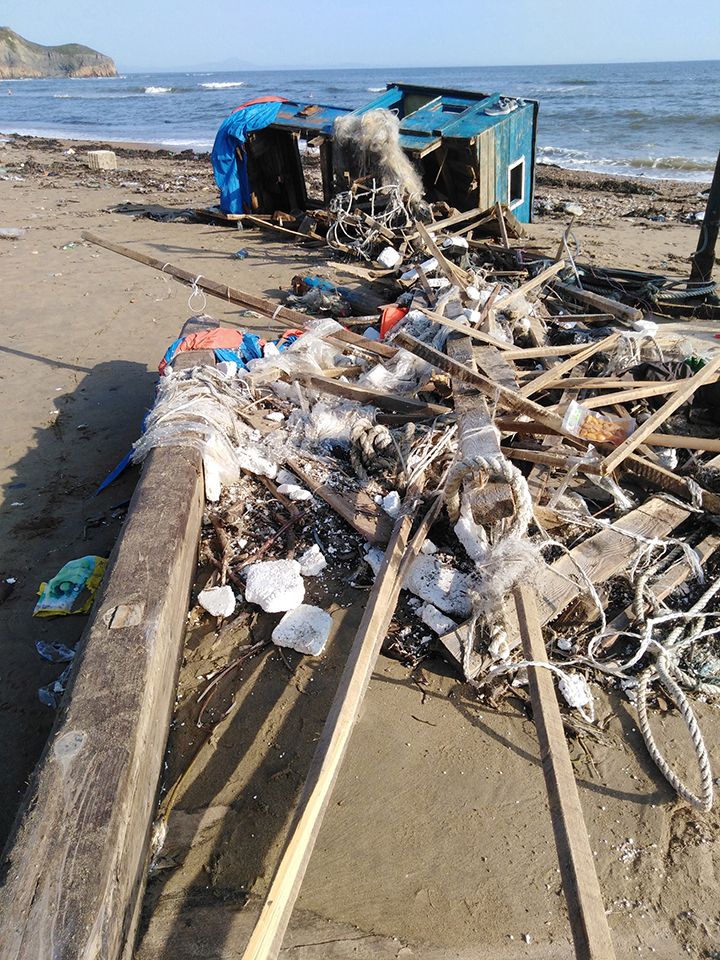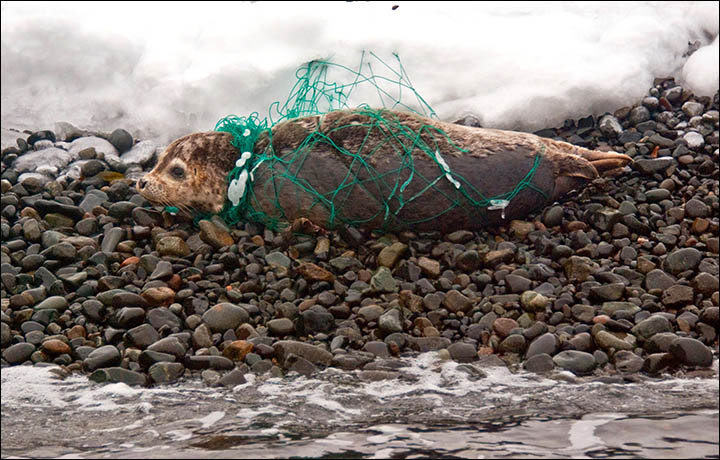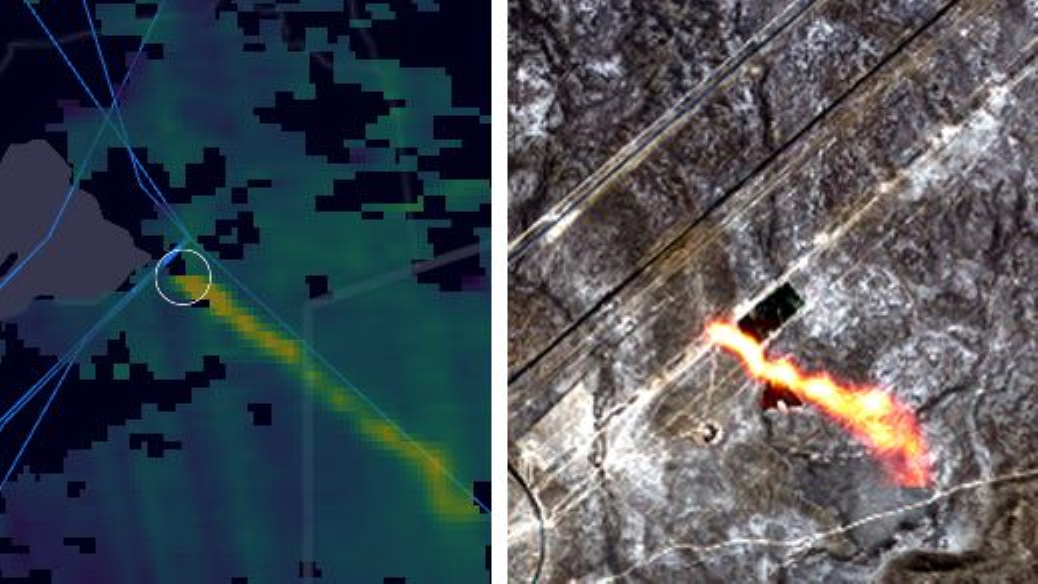Fishing nets junked by North Korean poachers kill marine life in Russian waters – Kilometers of nets thrown overboard monthly, expert warns – “We are currently in the state of a permanent ecological catastrophe”

24 October 2019 (The Siberian Times) – Anthropogenic rubbish – most of which is left in the sea by North Korean fishermen – is making deadly impact on marine life in Russian Far East.
A warning of a ‘permanently ongoing ecological catastrophe’ and a call for action comes from Igor Katin, researcher at the Far Eastern Marine Biosphere reserve.
North Korean poachers throw fishing nets into the sea after using them once or twice, he claimed in a study published in Theoretical and Applied Ecology magazine.
Nets are made from material that takes years to decompose.
They trap crabs, fish, starfish and sea urchins after sinking to sea bed and threaten mammals from seals to whales if they stay afloat or get washed to shore, he said.

It is not clear why the poachers throw fishing nets after such little usage, but according to Katin it is obvious they quickly become one the key threats to population of spotted seals (Phoca largha).
‘Satellite images we used for our research showed there were more than 3,500 vessels fishing in Primorsky region.
‘Each vessel uses at least one kilometre of nets, usually more, and given that each net is used during once or twice during months of fishing periods, we end up with thousands of kilometres of nets’, Katin wrote.
‘To summarise, we are currently in the state of a permanent ecological catastrophe’. [more]
Fishing nets junked by North Korean poachers in Russian waters kill marine life

ABSTRACT: In the last decade, the degree of anthropogenic impact on the habitats of pinnipeds in the coastal ecosystems of the Sea of Japan has sharply increased. The increase in pressure is caused by the emergence of new forms of marine debris associated with the intensification of coastal fishing. The greatest danger from fishing debris exists for the most numerous species of the region – the spotted seal Phoca largha. A unique feature of the territorial grouping of this species in Peter the Great Bay is that seals give birth not on sea ice, but on shore and during the reproductive period, the overwhelming majority of the population concentrates on few dozen square kilometers of water area of the Rimsky-Korsakov Archipelago. A high degree of anthropogenic impact in the bay is compensated by the high survival rate of newborns, and as a result, the largha population is in a state of unstable equilibrium, ensuring the maintenance of the numbers of seals at an alarmingly low level. Whelping occurs in haul out sites located in the pocket-shaped abrasive bays of the small islands of the archipelago, and the system of currents in the bay contributes to the accumulation of debris in such bays. Peculiarities of transport and circulation of marine debris are considered, as well as threats to seals, both direct ones, connected with the death of animals from damage by nets and other fishing wastes, and indirect ones, associated with a decrease in the area of haulouts during nursing period. Although seal mortality from marine debris is about 2%, but such an increase in the anthropogenic load on the largha population can cause a shift in the steady balance and lead to a decrease in the number of seals to a critical level.
The impact of marine debris on pinniped habitats in the Sea of Japan


